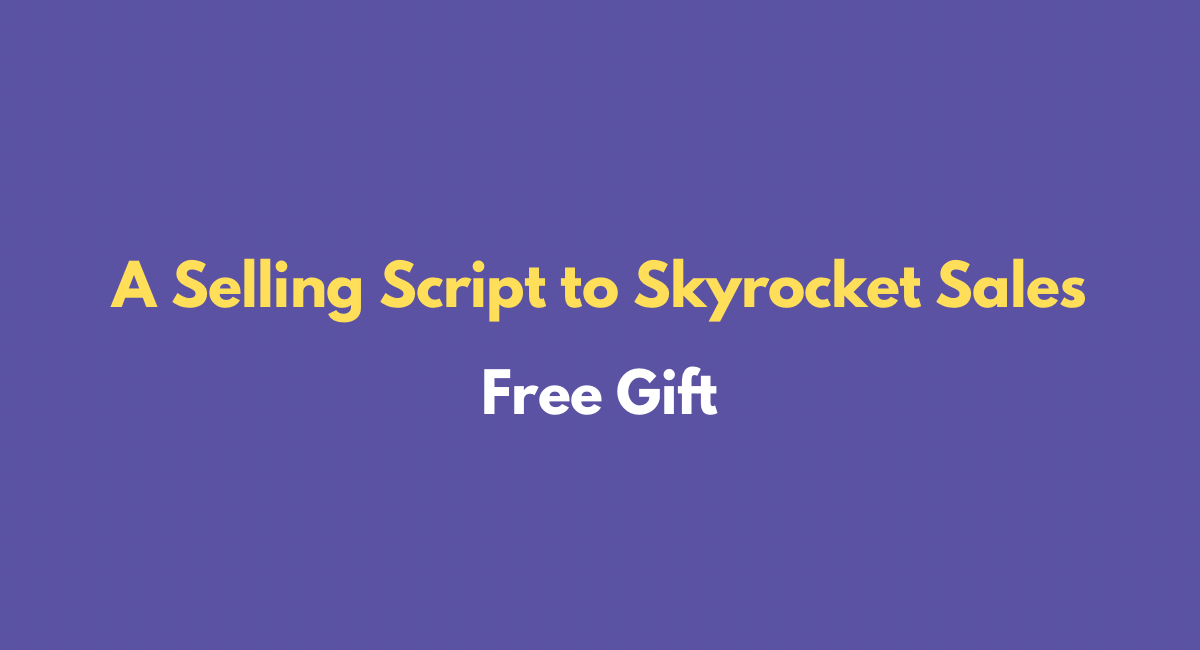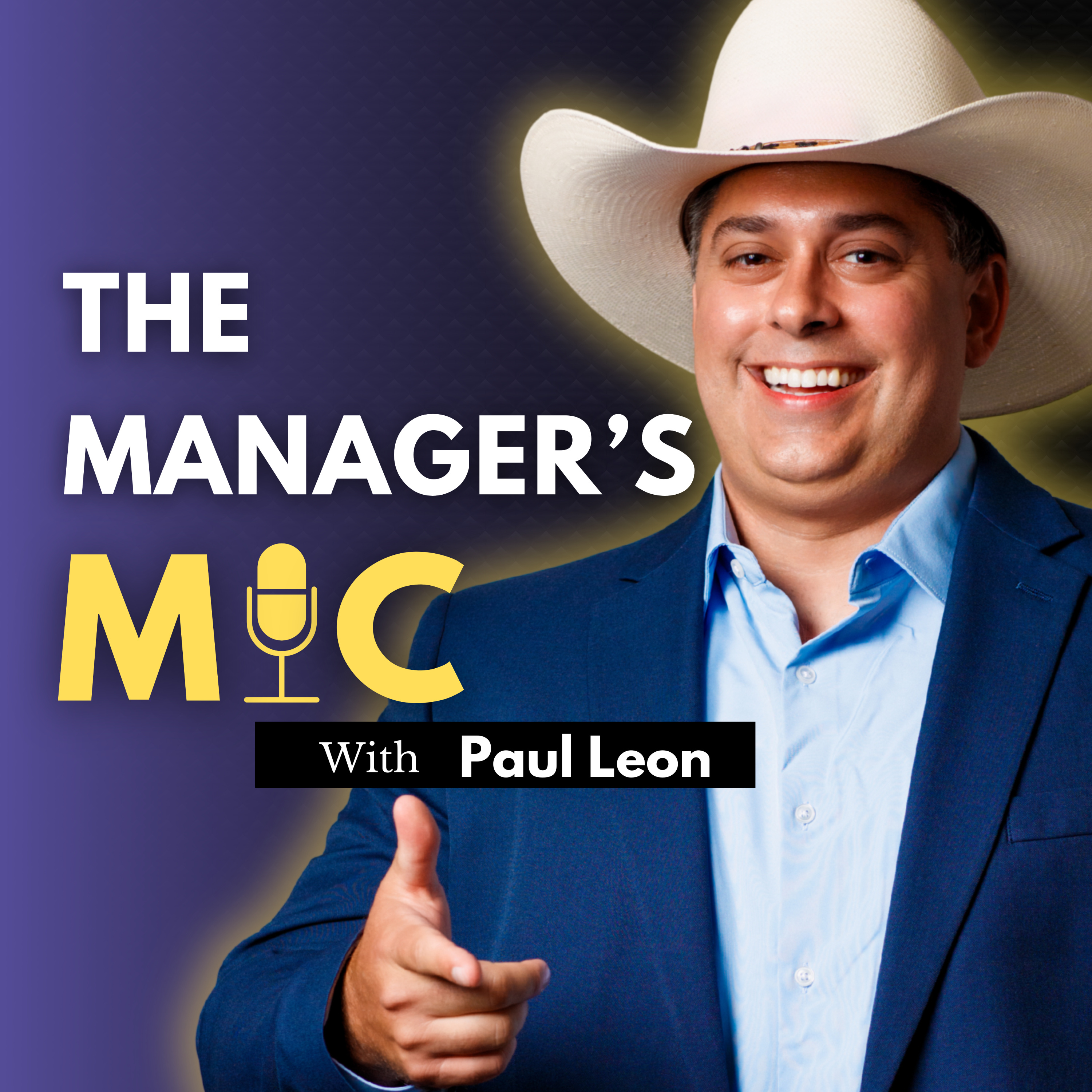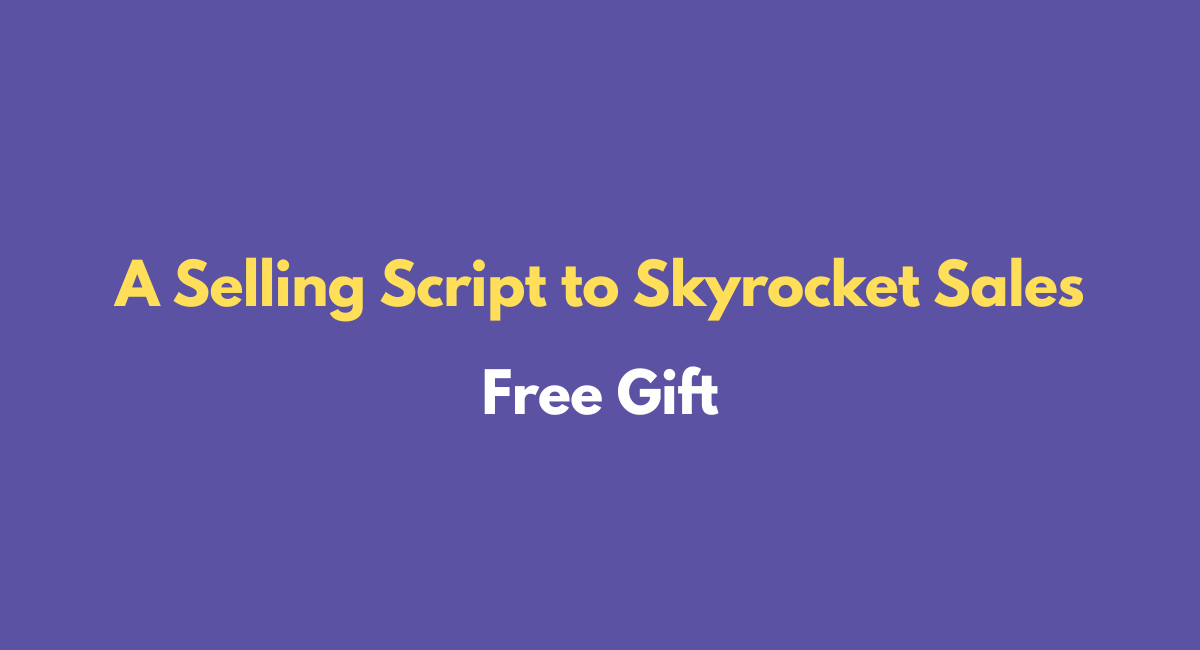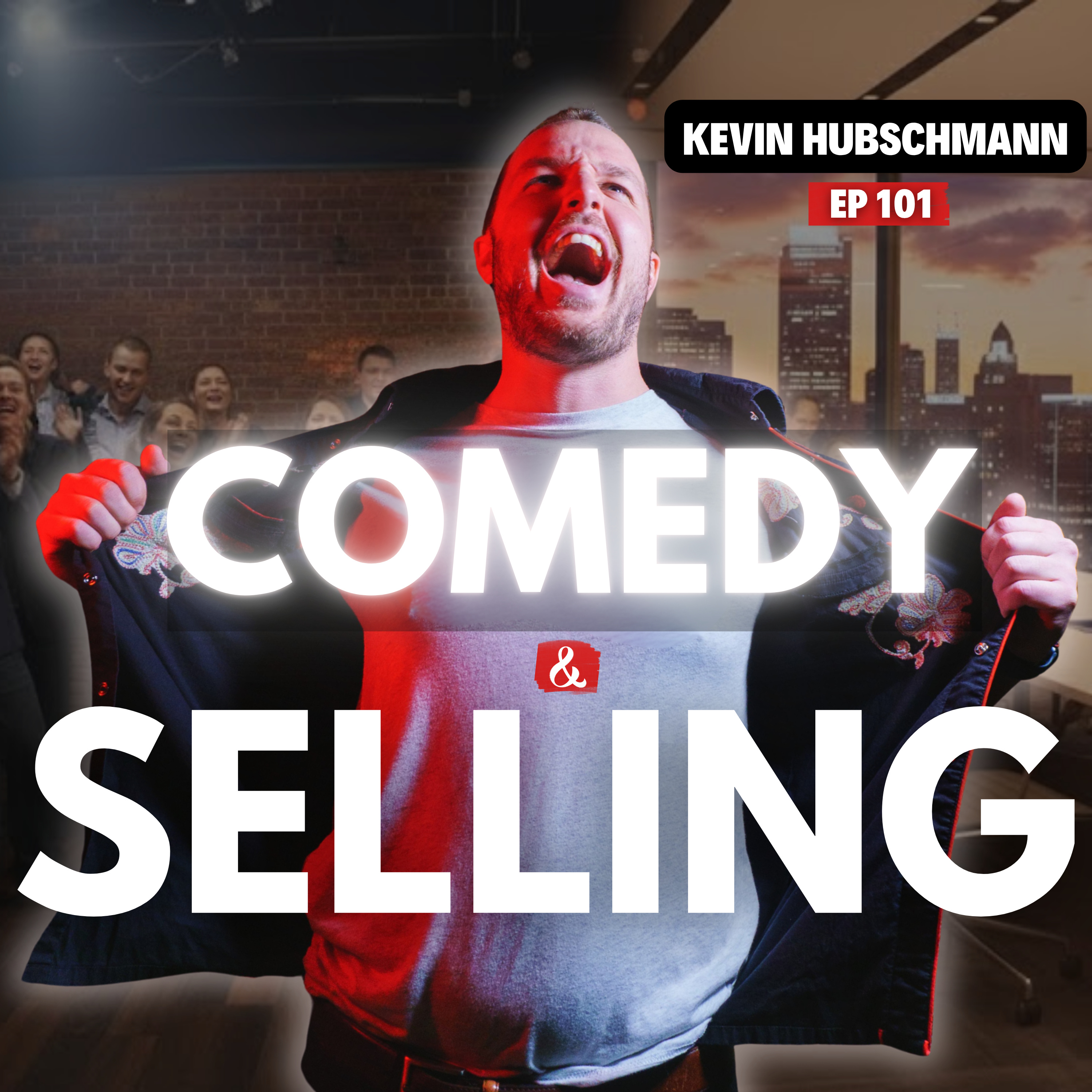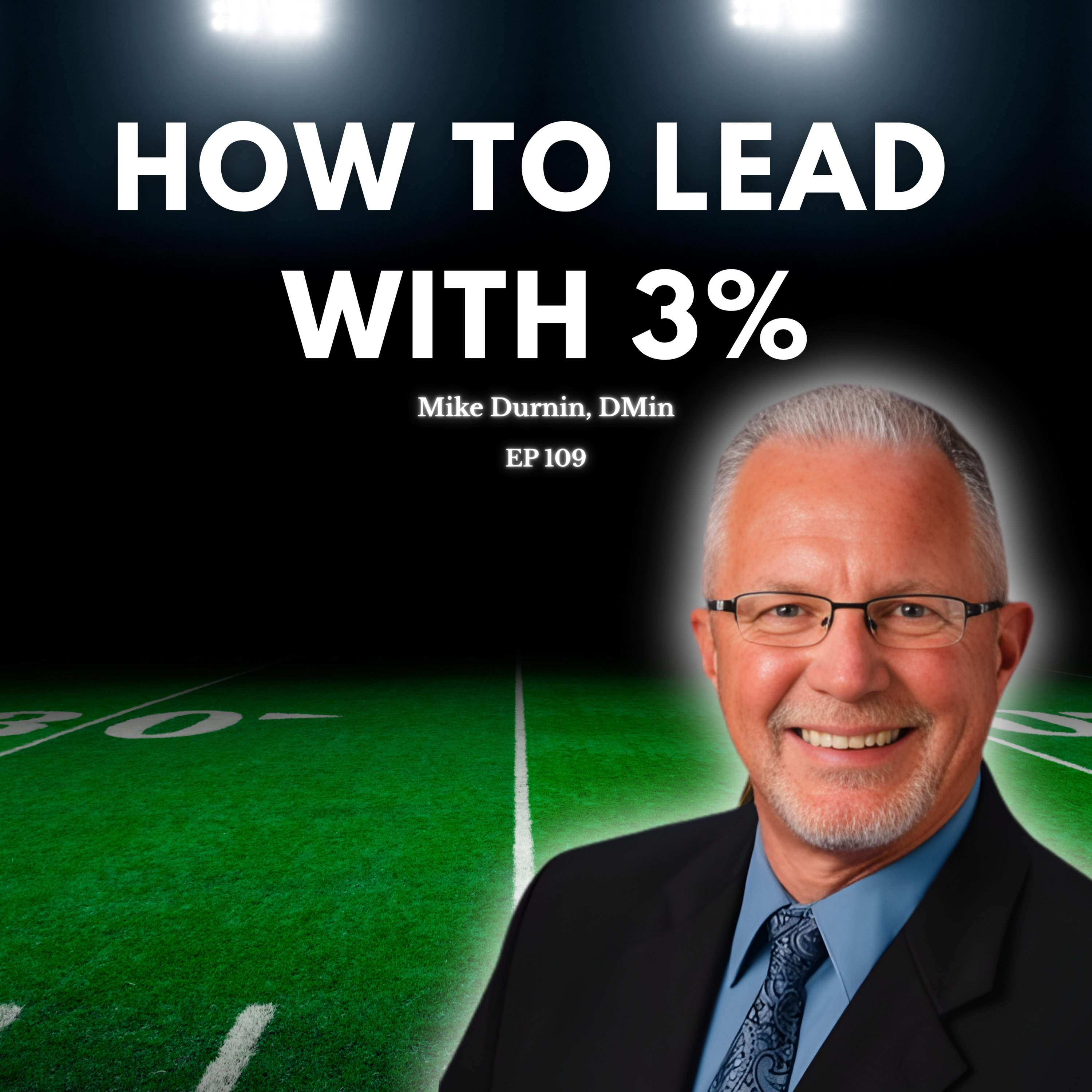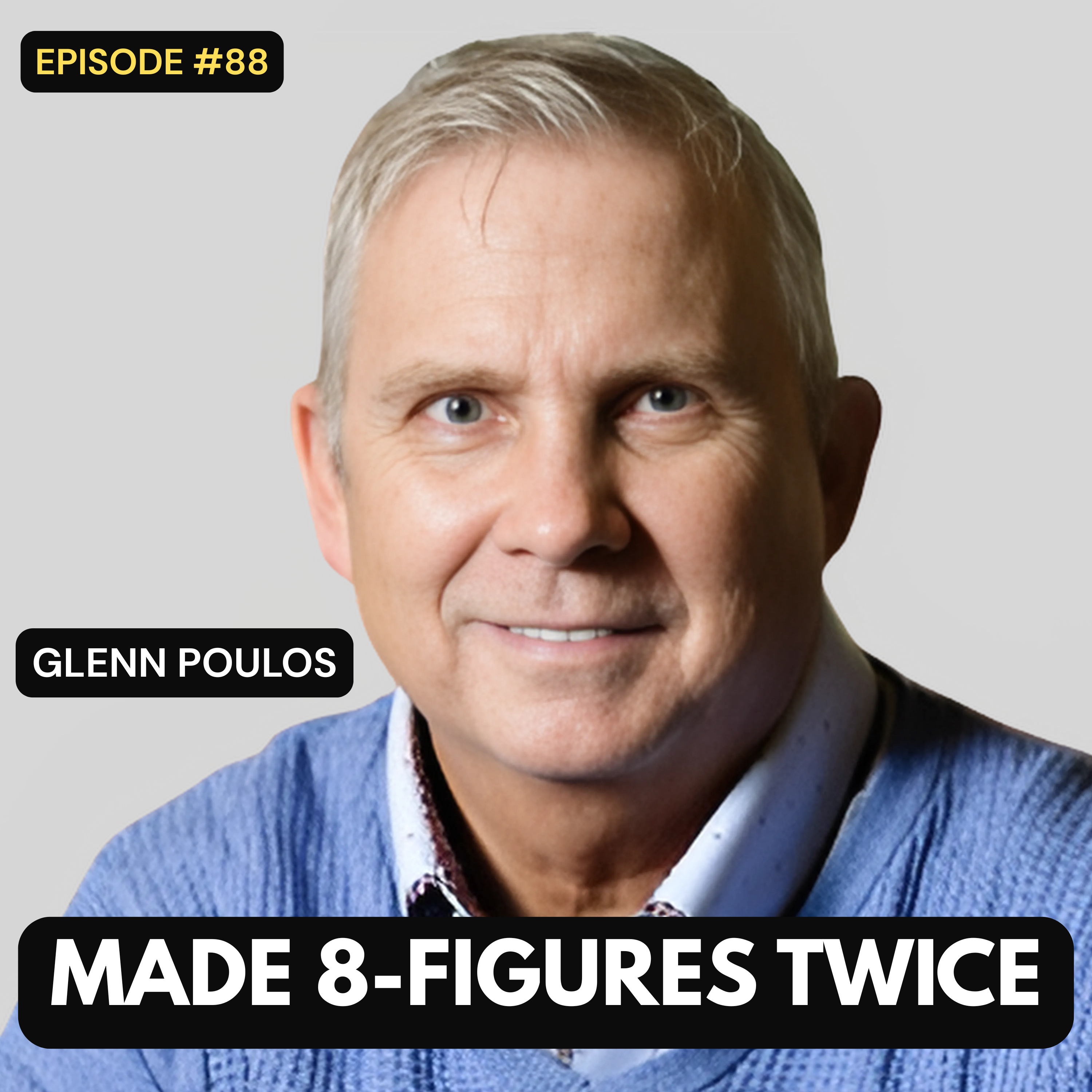
Unlock proven sales strategies from 40-year sales veteran Glenn Poulos, author of Never Sit in the Lobby: 57 Winning Sales Factors. In this episode of The Manager’s Mic – Power Up People Management, Glenn shares hard-earned lessons from building and selling multiple 8-figure businesses, mastering face-to-face selling, and creating the concept of “greed-based learning” to accelerate product knowledge and close more deals.
Follow Glenn Poulos
Download a Management Tool: The Five Habits of Highly Toxic Managers for Free
Chapters
00:00 Introduction – Glenn Poulos Built Multiple 8-Figure Sales Businesses
02:28 Core Beliefs Every Successful Salesperson Lives By
04:23 Greed-Based Learning: The Fastest Way to Master Any Product
06:53 Face-to-Face Selling Secrets That Close High-Value Deals
09:40 Winning Sales Presence: How to Command Any Room
12:11 Real Success Stories & Lessons from 40 Years in Sales
24:53 Post-COVID Sales Strategies That Still Work in 2025
25:59 Persistence in Sales: Following Up Without Annoying Clients
27:59 How to Create Scarcity & Urgency That Makes Customers Act
29:28 Customer Persona Secrets: Sell the Way They Want to Buy
31:38 Why Empathy Is Your Greatest Sales Closing Tool
33:03 Identifying Customer Needs Like a Top 1% Sales Rep
35:03 The Art of Losing Fast to Win Bigger Deals
36:28 Lessons Learned from the Biggest Sales Mistakes
40:00 Taking Bold Sales Steps Without Burning Bridges
40:31 Making Impressions That Lead to Repeat Business
Glenn Poulos (00:00)
Some of my biggest successes started in 1991. I started a company and sold it for eight figures in the early 2000s—that was a win. Then I started another company, Gap Wireless, in 2007 and sold that for eight figures in 2022. Now I have bought a third company. This time I am not starting it in Florida, and I am going to try to grow it.
Paul Leon (00:08)
Wow, that is a big one.
Glenn Poulos (00:33)
Yeah, it rhymes with “shoeless.” So, Poulos—shoeless—Poulos. Poulos, the shoeless Poulos.
Paul Leon (00:40)
Love it. I am going to do a quick intro, then invite you to talk about yourself and your experience. For those who have not heard you, this is really exciting, because when I looked at your background—and as I was telling you before I hit record—
Glenn Poulos (00:47)
Sure. Okay.
Paul Leon (00:55)
I could not sleep last night. I bought your book and started reading it. You are a 30-year sales leader, co-founder and VP/GM of Gap Wireless, a leading wireless technology distributor, and the author of Never Sit in the Lobby: 57 Winning Sales Factors, a field-tested playbook on selling. As someone who has been selling for 20 years and has trained 2,000 people, I honestly thought when I first picked up your book—this is a confession I probably should not make since it is our first time meeting—my assumption was it would be another generic sales book not grounded in reality.
I kept reading…and reading. From 3:00 a.m. to 6:00 a.m., I was already on chapter five. I had to get back to bed, but I could not put it down because your book is grounded in reality.
Glenn Poulos (01:47)
Yeah.
Paul Leon (01:55)
You can tell when someone writes from lived experience. When you talked about being in the lobby and how most people just play on their phone—those micro things we do not think about—if our teams changed those, the impact would be huge. Anything you want to add? I know I am getting a little over-excited.
Glenn Poulos (02:16)
In 2025, the 30 became 40. I went into sales in 1985, so that makes it 40 years now. I entered the workforce in 1982.
Paul Leon (02:28)
What I also liked—you did not plan on this—you talked in the book about working at Sears on watches. You had an old watchmaker you learned a lot from. Humble beginnings. You launched a company in 1991. You still lead sales teams today, and—
Glenn Poulos (02:36)
Yeah. Romeo.
Paul Leon (02:50)
What core beliefs have never changed for you in sales?
Glenn Poulos (02:56)
The two biggest ones:
Always be a pleasure to do business with—that is a core value for me.
Regardless of technology, face-to-face is better. People buy from people.
Over the years, getting in front of customers—how to get, act, and stay in front of them—has been the most important thing. And be a pleasure to do business with, even when you lose a big deal. That is super important to me.
Paul Leon (03:38)
The hard reality for salespeople is it can take 10 to 20 touches to reach a customer. When I dug into Gap Wireless and the kind of technology you sell, it is intricate. But in your book you said the best salespeople use “greed-based learning.” I started reading at three in the morning, so I am still studying.
Glenn Poulos (04:00)
Greed-based learning—yeah. No problem.
Paul Leon (04:07)
A salesperson who knows the core things can sell and work with anyone. Is that part of the Never Sit in the Lobby mindset you created over 40 years of selling and developing people? Or is there more?
Glenn Poulos (04:23)
Greed-based learning has two meanings. I am always trying to give you the cheat code. When you sell a lot of products, how do you learn them? That is where I had the epiphany.
Blindly trying to absorb knowledge—sitting down and reading a catalog—is almost impossible. I noticed in other areas of life I absorb information when there is something “in it for me.” Example: when I buy a car, I do not usually care about specs. But when I am choosing between three or four models, I suddenly know every feature—adaptive cruise control, lane assist, screens—because I am about to get one. The “greedy” aspect makes it stick. Apply what you are learning, and you retain it.
Same with crypto or stocks: you remember the ones you own. Today Bitcoin is around $116K. Ether is about 3,600. XRP around three dollars. HBAR about twenty-five cents. I know those because I own them.
So instead of learning the product first and then trying to generate interest, I would call the vendor and ask for the top three or four lines to create interest. I would book the meeting, and the moment the prospect showed budget or intent, my brain associated a win with that product. Then I took the deep dive. I would learn it, sell it, and then move on. That is greed-based learning—not to make you a greedy person, but as a cheat code for learning.
Paul Leon (09:14)
Everybody buys for themselves. People go to YouTube for themselves; they read for themselves. We do not matter—the more we disappear into the process and help people buy, the better. I like that you said business should be face-to-face. I agree. One thing I aligned with in your book is the lack of follow-up. It is a common pain point. But now people argue a lot can be done virtually.
Glenn Poulos (10:04)
No. I have to interrupt and go full stop. Imagine I give you $50 million, but you must buy a private jet. Now jump on a Zoom call with your virtual flight attendant…you virtually fly to Miami…virtually enjoy snacks…and at the end you wire me $50 million, and I send you the jet. Would you ever spend $50 million without flying in it? No.
Sure, if you sell SaaS, online demos can work. But if you are working a $1 million Salesforce deal, do you really think the competitor is doing everything on Zoom? They are onsite. They want to see shirts, mouse pads, mugs, pens—what the competitive landscape looks like. You cannot do that over Zoom.
Some meetings can be virtual, but the real power and joy of selling comes from being in front of the customer.
Paul Leon (11:54)
Yeah. Right.
Glenn Poulos (12:16)
The Zoom grind wears you down. If I get an in-person call lined up, even if I am tired, the moment I arrive I am “on stage.” It is the best part of the day—being with customers. A lot of the other stuff I call marketing.
Paul Leon (12:42)
One thing I appreciate is your passion. Talk more about “winning sales presence.” Everything you just said fits that mindset. You are not speaking hearsay. Share what you have accomplished that proves these beliefs—from fixing watches at Sears to now. What can it do for someone starting out? I felt like I was stealing 40 years of experience for $20. What successes can you share so people do not think this is just hearsay?
Glenn Poulos (13:54)
In 1991 I started a company and sold it for eight figures in the early 2000s. Then I started Gap Wireless in 2007 and sold it for eight figures in 2022. Now I bought a third company.
In terms of sales, one memorable deal was at Dofasco, a steel plant. We had no business there. They wanted analog strip-chart recorders; we were introducing digital. I got in, showed the production guy why digital was better, and uncovered other instruments they were buying—over $500K in the 1980s, nearly my entire annual quota.
But the plant was being installed by Toshiba. “Go tell them.” So my president said, “Where are they? What is the address? Drive me.” We went, did the dog-and-pony, and convinced them.
Then they said, “Everything electrical is supplied by Guillevin International.” So: “Where is Guillevin? Who is the contact?” We went there. They said, “You need the VP at Dofasco to agree.” Back we went—six layers up from the production floor where we started. In the end we got the entire order.
Most people would send an email and wait. For a half-million-dollar deal? Get in the car. Move city to city. Ask to be dropped at the decision-maker’s desk.
Paul Leon (19:14)
Yeah. Okay. Right.
Glenn Poulos (19:30)
I learned to match deal size to buyer level. If you are selling a $50,000 item to a $4 million company, the owner signs. If it is a $50,000 item to a $9 billion corporation, who signs? Start at the highest appropriate level.
In the book I use tow motors (forklifts) as an example. Call the CEO: “We have new electric tow motors—25% faster, 20% more efficient, 20% cheaper to operate.” He says, “I do not get involved in tow motors.” “No problem—who does?” He points to the VP of Logistics. The VP points to the Head of Logistics. He points to the foreman. By the time I reach the shop steward, I can truthfully say I have spoken to everyone.
And I never “fax the facts” or “ship the demo.” If someone asks for a brochure, quote, or demo, I deliver it and set it up. Otherwise, it will sit in a box. While the steward is driving the unit and loving it, I call the CEO: “You will see a $120,000 PO. Come down for two minutes and see this.” A minute later, he is in the warehouse.
Starting at the top also reveals blockers early—contracts, budgets, policies—so you do not waste time.
Paul Leon (23:42)
You have been in this 40 years, sold two companies for eight figures, and now a third. Let me challenge you with an observation. As a former comedian, your story felt like the Benny Hill theme—back and forth to please a client. Second: by prioritizing in-person when others went virtual, do you win more because of that mindset?
Glenn Poulos (24:48)
Yes. Today I see it with my team: excuses for not leaving the office—work from home, lockdowns, “no one is at their desk.” Customers can be like that too. It is hard. But they do go to work—especially if you sell tangible hardware. Someone is using your product or a competitor’s at work.
Be persistent. Call them. Leave a voicemail (never less than 20 seconds, never more than 30). Get to the point. Follow with email. Call again. Call the person next to them. Be at the trade shows. Visit the office. If you know someone else there, drop off relevant swag or literature and ask for five minutes—then try to bring your target into that conversation.
I install my demo while competitors’ demos sit unopened. I create scarcity on loaners and set the next visit before I leave. Then I come back and check usage, observe the environment, and spot other opportunities. There are points in the cycle where you must be present.
Paul Leon (29:29)
I train voicemail, too: leave your number twice up front, state the bottom line, add a twist—then number again. It worked in B2B. People said, “That voicemail script is crazy.”
Glenn Poulos (30:17)
Those AI robo-voicemails are awful. Yeah. Exactly.
Paul Leon (30:36)
In your book you cover tough customer types and being politely persistent—“Give me two minutes…five minutes.” Any personas that are hardest to overcome—and how?
Glenn Poulos (31:06)
The toughest are the non-communicators. There is no magic recipe. I focus on not being a pain for whoever is in front of me.
I talk a lot about empathy because people confuse it with sympathy or compassion. Learn the definitions and use them appropriately. Sympathy is understanding someone’s pain: “That sucks—I crashed my car.” Empathy is stopping what you are doing, becoming the person, and feeling what they feel: “I just totaled my car. I am Paul. I spent all my money.” Compassion is the combination of sympathy and empathy—with action—to reduce suffering.
Rapport must be natural and appropriate. Do not force it.
The best way through to customers is to stop talking about your product and start understanding exactly how the customer makes money. Xerox might sell copiers at cost and make money by renting them—so maybe you need to be talking to finance, not a different department. Present your product so it naturally solves their true problems. That is part of winning sales presence.
Attraction is not a choice. When you see a brand-new Mercedes, you do not need someone to tell you it is awesome. Show them the WSP—the winning sales presence—so they are naturally attracted to it.
Paul Leon (35:09)
Yes—that resonated.
Glenn Poulos (35:21)
On losing quickly: I would rather be last than second, because second is first-place loser. In every loss there is a moment you know—unequivocally—you are not getting the deal. Maybe they have $10K and you sell a $100K solution. Maybe they need 80 ops per second and you cap at 40. The moment you know, politely recuse yourself and run to the next customer.
While you are selling the next one, your competitors are still fighting over a deal they may not win.
Paul Leon (36:12)
I like that—lose fast. Here is a “choose your own adventure.” If you could go back to Sears with Romeo, what would you tell young Glenn to fast-track success?
Glenn Poulos (37:16)
Romeo taught me an invaluable lesson: “$10 million in diamonds.” At Sears, he was a watchmaker. I did minor jewelry and watch repairs. He later opened his own jewelry store—his life goal. He was a short Italian man, strong accent, had polio, sometimes in a wheelchair, sometimes with canes—probably four feet tall—and he had an active social life.
When I saw him years later, he said, “It is amazing. I could be doing the $10 million selling the diamonds, but I am so busy in the back fixing the watches.”
It hit me: hire a watchmaker and go sell the diamonds. Many of us get lost fixing watches and miss the $10 million in diamond deals. People who do $10 million a year do not fix watches—they focus on big wins. They start every call at the CEO because they know who signs. Scale the level to the dollars, but the logic holds.
Even today I remind myself: “Glenn, you are fixing watches.” Stop fixing watches. Go sell diamonds.
Paul Leon (39:47)
I like that. I feel like I am in your inner circle now. If listeners do one thing different this week to stop “sitting in the lobby,” what should it be?
Glenn Poulos (40:04)
Using that phrase as a shorthand—“stop sitting in the lobby”—I would say: find one prospect you have been afraid to approach, go one step bolder, and make the call. You will find it is no harder than any other call. Ask for the meeting. Show up.
Selling starts when you stand up. You get forever to make another impression. In sales and business, life is not one first impression; it is a series of impressions made over and over. Every one is just as important as the first. Always put your best foot forward when the boss is around. There is no “I am having a bad day” or “I was distracted.” Your career depends on it.
The person who gets promoted to manage the Western region never sits in the lobby—always on, always doing the next right thing, always working hard. The person who does not get promoted is the one the boss walks by watching Reels on Instagram because he did not want to make calls.
Paul Leon (41:22)
Yeah.
Glenn Poulos (41:22)
If you buy the book—which would be nice but is not mandatory—you do not have to read it cover to cover. Flip anywhere and read one rule. They stand alone.
People ask why I include things like “how to go to lunch with a customer.” Because I have lost deals sitting in the wrong chair and talking about the wrong things. I cover building rapport, where to sit, how to order, hiring and firing—everything. I still practice these rules. When a rep says, “I am stuck,” my advice is: go see them, and always show up with something in your hand and something on your mind—something to give and something to ask.
Paul Leon (42:12)
Right. You have a free worksheet where people can learn how to “punch” without sounding scripted. Where can they find it?
Glenn Poulos (42:23)
It is the Punch-Perfect Pitch and Close. It uses the Goldilocks principle and the power of three—good, better, best; cold, warm, hot—package things in threes. Before you present, change the customer’s state—that is the “punch.” Play a theme, or a short video that shows the product’s WSP solving the problem.
Do not start with, “Let me tell you about our factory in Japan with 1,200 people, and our plant in Singapore with 2,000 more.” They have checked out. Tell them what you will tell them. Tell them. Then tell them what you told them—always in threes. If it takes four points, it is too many; if only two, you have not elaborated enough.
If you do it right, the close is when the customer asks, “How much is it?” They close themselves. There is a worksheet on my site to help you think through it.
Paul Leon (43:55)
I will put that in the show notes and on the website. I encourage people to download it. I have read over 50 sales books and I am in an MBA program—most books bore me; yours does not. I encourage people to invest. “Cost” feels like loss; “investment” feels like gain. What you said makes the case for investment in those meetings. Buying the book for twenty bucks is a steal for 40 years of experience from someone who sold multiple eight-figure businesses. That is from the heart.
Glenn Poulos (44:10)
Thanks.
Paul Leon (44:22)
—
Glenn Poulos (44:34)
Well, thanks, Paul.

Author, Never Sit in the Lobby
Author, Never Sit in the Lobby
Glenn Poulos is the co-founder, Vice President, and General Manager of Gap Wireless Inc., a leading product and service distributor for the mobile broadband and wireless markets. With over three decades of experience in sales, he has developed a successful belief and strategy system by spending thousands of hours in the field or on the phone with customers and working with salespeople in several successful companies.
